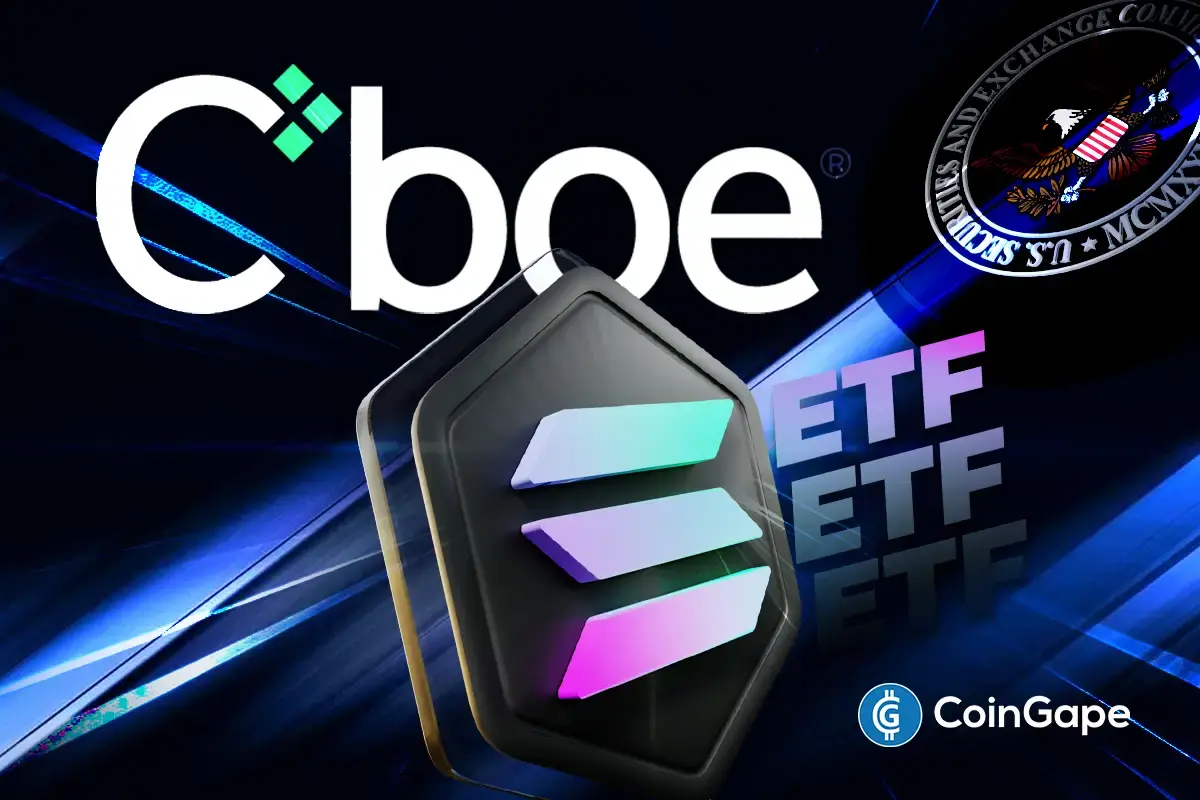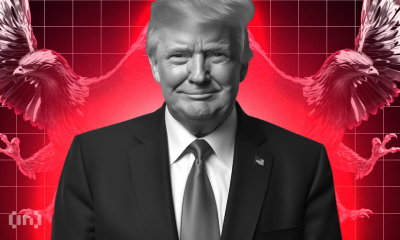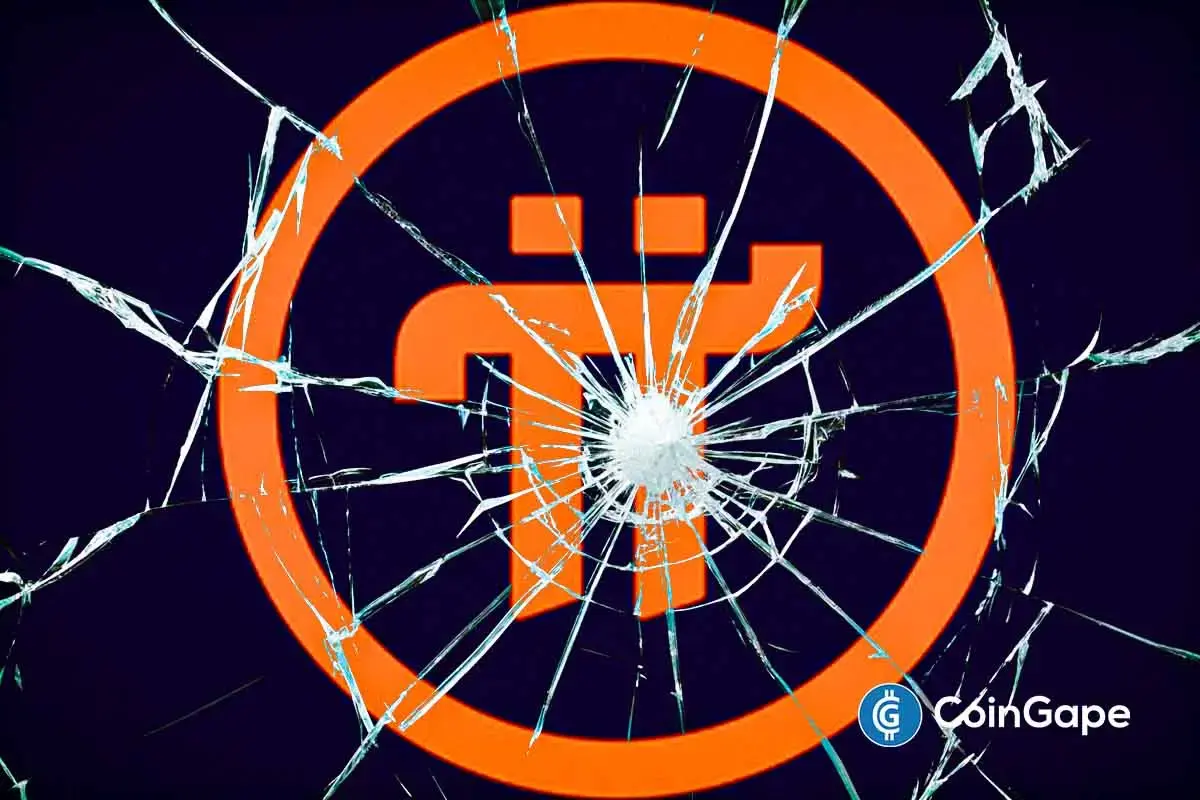Regulation
Crypto Haven Dubai Turns Strict on Marketing Crypto Investments

Crypto Haven Dubai has recently decided to shift gears and tighten the noose when it comes to marketing crypto investments in the country. This is the first such measure from the UAE as its crypto landscape sees rapid growth amid crypto-friendly rules, also attracting a large number of crypto investments.
Dubai Regulator Updates Guidelines on Crypto Investments
In the latest development, Dubai’s Virtual Asset Regulatory Authority (VARA) updated its marketing guidelines for cryptocurrency investments. This requires firms to provide clear risk disclaimers for their advertisements.
Starting next week October 1, virtual asset service providers (VASPs) operating in the United Arab Emirates will have to prominently state that “virtual assets may lose their value in full or in part, and are subject to extreme volatility”.
These rules are part of VARA’s “Marketing Guidance Document,” and will govern other aspects of how VASPs market their services. Furthermore, these guidelines will ensure that firms provide clear, consistent messaging thereby helping them to navigate through Dubai’s regulatory framework confidently. In a historic ruling last month, the Dubai Court allowed companies to pay salaries in crypto.
Additionally, these measures will protect investors by raising awareness of the risks associated with virtual asset investments. Speaking on the development, VARA noted:
“The updated regulations place a strong emphasis on the accuracy of marketing communications, the avoidance of misleading information, and the protection of consumer interests. They apply to all entities involved in marketing virtual assets or related activities, regardless of their licensing status with VARA.”
Crypto Investment Services on the Rise
As we know, investor interest in crypto has surged significantly moving beyond simple trading and investment platforms. As a result, the demand for more sophisticated crypto investment products has been growing in Dubai. Thus, with the new marketing guidelines, VARA seeks to bring a standardized approach for licensed entities to adhere to their messaging. These rules will also be applicable to some of the best exchanges in UAE and Dubai.
VARA offers multiple licenses for entities based on the categories they wish to operate in. Last year, the authority established deadlines for virtual asset service providers (VASPs) to apply for and obtain the appropriate licensing to comply with regulations.
Matthew White, CEO of the regulator told Bloomberg: “VARA is dedicated to creating a regulatory environment that not only protects consumers but also supports the growth and innovation of the virtual assets sector”.
Disclaimer: The presented content may include the personal opinion of the author and is subject to market condition. Do your market research before investing in cryptocurrencies. The author or the publication does not hold any responsibility for your personal financial loss.
Regulation
US SEC Acknowledges Fidelity’s Filing for Solana ETF

The U.S. Securities and Exchange Commission (SEC) has formally acknowledged the filing for Fidelity’s spot Solana (SOL) Exchange-Traded Fund (ETF).
This marks a key development in the financial industry, as Fidelity seeks to list its Solana ETF on the Cboe BZX Exchange. The acknowledgment comes after Fidelity submitted a proposed rule change, paving the way for the potential approval of the product.
Fidelity’s Spot Solana ETF Proposal
The SEC’s acknowledgment follows Fidelity’s filing to list and trade shares of the Fidelity Solana Fund under the Cboe BZX Exchange. The proposed rule change, initially submitted on March 25, was later amended on April 1, 2025, to clarify certain points and add additional details.
The amended proposal aims to list the Solana ETF under BZX Rule, which pertains to commodity-based trust shares. According to the Cboe BZX Exchange, Fidelity plans to register the shares with the SEC through a registration statement on Form S-1.
Fidelity’s experience with crypto ETFs, having launched the Fidelity Wise Origin Bitcoin Fund (FBTC) and the Fidelity Ethereum Fund (FETH), has prepared it for this new initiative. FBTC has drawn substantial interest, accumulating nearly $17 billion in assets, while FETH currently manages around $975 million.
This Is A Developing News, Please Check Back For More
Disclaimer: The presented content may include the personal opinion of the author and is subject to market condition. Do your market research before investing in cryptocurrencies. The author or the publication does not hold any responsibility for your personal financial loss.
Regulation
US Senate Banking Committee Approves Paul Atkins Nomination For SEC Chair Role

The U.S. Senate Banking Committee has voted to approve Paul Atkins’ nomination for the role of Chair of the Securities and Exchange Commission (SEC). The vote, which took place on Thursday, passed with a narrow margin of 13-11, along party lines.
Paul Atkins, nominated by President Donald Trump, now moves one step closer to taking over the top regulatory position at the US SEC.
Senate Banking Committee Approves Paul Atkins Nomination
Paul Atkins’ nomination for SEC Chair has received approval despite sharp opposition from Democratic members of the Senate Banking Committee. The vote was entirely split, with Republicans supporting Atkins and all Democrats opposing the decision.
This partisan divide highlights the contentious nature of Atkins’ confirmation, which had been under scrutiny for several reasons.
The committee’s approval now clears the path for Atkins to proceed to the full Senate for a final confirmation vote. Given the Republican-controlled Senate, it is widely expected that Atkins will secure the necessary votes to take over the SEC leadership. With Republicans holding a 53-47 majority in the Senate, the confirmation process is anticipated to move forward swiftly.
This Is A Developing News, Please Check Back For More
Disclaimer: The presented content may include the personal opinion of the author and is subject to market condition. Do your market research before investing in cryptocurrencies. The author or the publication does not hold any responsibility for your personal financial loss.
Regulation
Kraken Obtains Restricted Dealer Registration in Canada

Cryptocurrency exchange Kraken has obtained a Restricted Dealer registration in Canada. The registration comes after completing a pre-registration undertaking (PRU) process with Canadian authorities.
The exchange has also announced the appointment of Cynthia Del Pozo as its new General Manager for North America. Del Pozo will oversee Kraken’s growth initiatives in Canada.
Kraken Completes PRU Process In Canada
Kraken’s Restricted Dealer registration marks the completion of a thorough pre-registration undertaking (PRU) process with Canadian regulators. The registration places Kraken under the supervision of the Ontario Securities Commission (OSC). This oversight ensures users have access to secure crypto products within a properly regulated local ecosystem.
According to the Canadian Securities Administrators (CSA), the Restricted Dealer registration is one of eight firm registration types in Canada. This particular classification is used for firms that “do not quite fit under any other category.” It also comes with specific requirements and conditions set by securities regulators.
Kraken’s regulatory achievement comes during a period of change in the Canadian crypto sector. Just months earlier, competitor Gemini exchange announced its departure from the Canadian exchange market by the end of 2024. This was a move that surprised many and raised questions about cryptocurrency regulation clarity in the country.
Kraken Introduces New Canadian GM
Del Pozo has joined Kraken to lead its Canadian operations as the new General Manager for North America. She has nearly 15 years of experience in corporate development, operations, and fintech consulting. Del Pozo will help to guide Kraken’s expansion across Canada during this important phase of crypto’s development in the region.
“Canada is at a turning point for crypto adoption, with a growing number of investors and institutions recognizing digital assets as a vital part of the financial future. I’m thrilled to join Kraken’s mission at this critical moment, and to lead our expansion efforts, ensuring we continue to serve our clients long-term with innovative and compliant products,” said Del Pozo.
In her role, Del Pozo will focus on strengthening Kraken’s regulatory relationships and also scaling the company’s presence throughout North America.
Del Pozo also commented on the registration achievement: “This Restricted Dealer registration is testament to the high bar Kraken has always set for consumer protection, client service, and robust security. We’re excited to continue expanding our world-class investment platform and to deliver innovative products that provide real-world utility to Canadians.”
The Exchange’s Continued Growth In Canada
Over the past two years, the cryptocurrency exchange has shown steady expansion in Canada while working through the PRU process with regulators. During this period, the exchange has doubled its team size and monthly active users.
According to the official blog post figures, the firm now has more than $2 billion CAD in total client assets under custody. Kraken has also increased support for some of the most popular cryptocurrencies. It provides several CAD spot trading pairs that enable Canadians to trade crypto without paying expensive foreign exchange fees.
According to Innovative Research Group’s 2024 Investor Survey, 30% of Canadian investors currently own or have owned cryptocurrencies. Likewise, a KPMG Canada survey discovered that 30% of Canadian institutional investors now have exposure to cryptocurrencies, which means widespread adoption across investor types.
Disclaimer: The presented content may include the personal opinion of the author and is subject to market condition. Do your market research before investing in cryptocurrencies. The author or the publication does not hold any responsibility for your personal financial loss.
-

 Market23 hours ago
Market23 hours agoBitcoin’s Future After Trump Tariffs
-

 Regulation21 hours ago
Regulation21 hours agoUS Senate Banking Committee Approves Paul Atkins Nomination For SEC Chair Role
-

 Market24 hours ago
Market24 hours agoEDGE Goes Live, RSR Added to Roadmap
-

 Market20 hours ago
Market20 hours agoBinance Managed 94% of All Crypto Airdrops and Staking Rewards
-

 Market22 hours ago
Market22 hours agoTRUMP Token Hits Record Low Due To Liberation Day Tariffs
-

 Market21 hours ago
Market21 hours agoPi Network Price Falls To Record New Low Amid Weak Inflows
-

 Regulation18 hours ago
Regulation18 hours agoUS SEC Acknowledges Fidelity’s Filing for Solana ETF
-

 Market16 hours ago
Market16 hours agoWormhole (W) Jumps 10%—But Is a Pullback Coming?























✓ Share: